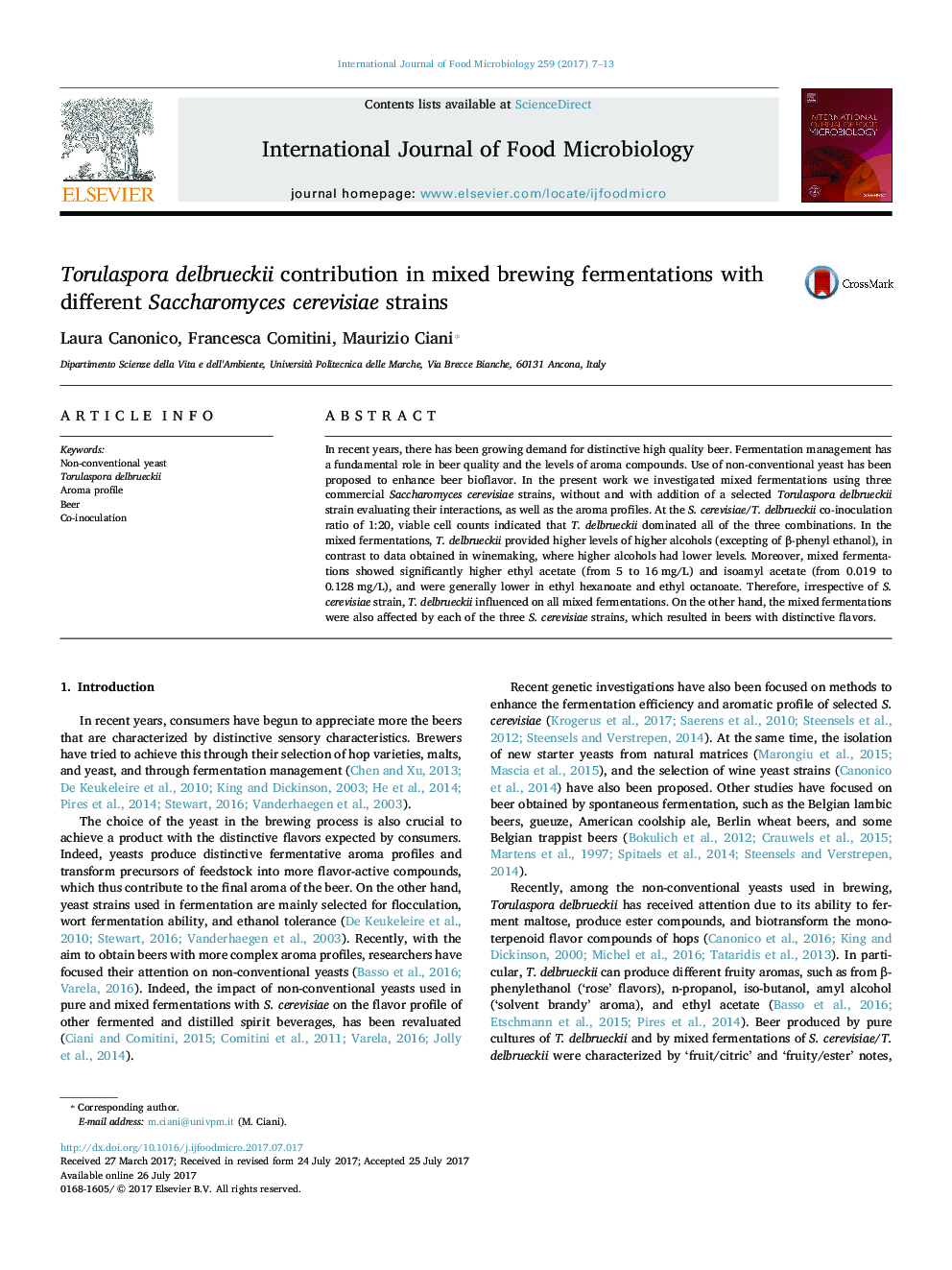| Article ID | Journal | Published Year | Pages | File Type |
|---|---|---|---|---|
| 5740727 | International Journal of Food Microbiology | 2017 | 7 Pages |
Abstract
In recent years, there has been growing demand for distinctive high quality beer. Fermentation management has a fundamental role in beer quality and the levels of aroma compounds. Use of non-conventional yeast has been proposed to enhance beer bioflavor. In the present work we investigated mixed fermentations using three commercial Saccharomyces cerevisiae strains, without and with addition of a selected Torulaspora delbrueckii strain evaluating their interactions, as well as the aroma profiles. At the S. cerevisiae/T. delbrueckii co-inoculation ratio of 1:20, viable cell counts indicated that T. delbrueckii dominated all of the three combinations. In the mixed fermentations, T. delbrueckii provided higher levels of higher alcohols (excepting of β-phenyl ethanol), in contrast to data obtained in winemaking, where higher alcohols had lower levels. Moreover, mixed fermentations showed significantly higher ethyl acetate (from 5 to 16 mg/L) and isoamyl acetate (from 0.019 to 0.128 mg/L), and were generally lower in ethyl hexanoate and ethyl octanoate. Therefore, irrespective of S. cerevisiae strain, T. delbrueckii influenced on all mixed fermentations. On the other hand, the mixed fermentations were also affected by each of the three S. cerevisiae strains, which resulted in beers with distinctive flavors.
Related Topics
Life Sciences
Agricultural and Biological Sciences
Food Science
Authors
Laura Canonico, Francesca Comitini, Maurizio Ciani,
